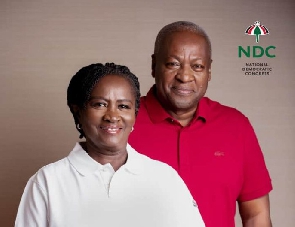Opinions of Sunday, 10 September 2006
Columnist: Nuviadenu, Kobla
Ghana To Endorse Gay & Lesbian Practices?

Barely about a week ago, Ghanaians awoke to find to their consternation that a controversial international gay and lesbians confab was about to be held in Accra on September 4, 2006.
In a swift and robust reaction to the news, the government, through the Minister of Information and National Orientation, Hon. Kwamena Bartels issued a statement condemning and even banning the hosting of the conference in the country. It stated in part, that “the government does not condone any such activity which violently offends the culture, morality and heritage of the entire people of Ghana. Supporting such a Conference, or even allowing it, will encourage that tendency which the law forbids.” He continued “The government will like to make it absolutely clear that it shall not permit the proposed conference anywhere in Ghana….. Unnatural carnal knowledge is illegal under our criminal code. Homosexuality, lesbianism and bestiality are therefore offences under the laws in Ghana”. “.....it is not illegal for them to meet and talk, but we in Ghana don’t want to encourage it. They can go and do it elsewhere” he added. Since then, there have been mixed reactions to government’s position. Panelists on radio and television talk shows, callers to phone-in-programmes, and even the Christians Council of Ghana, among others, have either sided with or against government’s position. Suffice it to state here that the vast majority of the comments I have heard have been in support of government’s position. Gladly too, for once, debates and discussions over the issue have remained significantly non-partisan. Was government right in the position it took viewed against the fundamental human rights of people as enshrined in the constitution? Proponents of gay rights contend that government’s stance is an infringement on the rights of such people to associate. They argue further that the issue is a moral one and that the highest judge of morality is one’s conscience. To them people can congregate to advocate against the status quo. They stress that the law in Ghana debars people with a common interest from meeting over an issue even though the issue itself might be unconstitutional. After all, to them, meeting over an issue does not amount to “engaging” in it. Who says one cannot meet to advance arguments to question and test the existing law? Gay rights activists like Hon. Twumasi Appiah, (MP) for Sene, opine that the position of government is “the highest form of dictatorship”. To the MP, government is only being hypocritical and that if it has any justification, it should go ahead and arrest the perpetrators, instead of banning the conference. Despite all the above arguments, what is the position of the law, culture, practices and conventions of the country on the subject? Under Ghanaian laws, male homosexuality is officially illegal. The Criminal Code of 1960, Chapter six: sexual offences, Article 105 reads:Whoever is guilty of unnatural carnal knowledge – (a) of any person without his consent, is guilty of first degree felony; (b) of any person with his consent, or of any animal, is guilty of misdemeanor”. Under Ghanaian laws, there is no legal recognition of same sex couples. CAP 127 (Marriage Ordinance of 1951) and CAP 129 (Marriage of Mohammedans Ordinance of 1907) all concur that marriage should be between “man and wife” and a “bachelor and a spinster”. Where is the place of gays and lesbians under these ordinances? Although the constitution guarantees freedom of association and assembly, one should not be myopic to think and believe that such a right is absolute. It is not! Chapter 12(2) of the Constitution places a limitation on the exercise of rights viz “….. but subject to respect for the rights and freedom of others and for the public interest” (Emphasis mine). Congregation in furtherance or perpetuation of an illegality is criminal. It should be worth pointing out to the lobbyists and human rights activists that in the course of lobbying to get an existing legislation changed, one can be charged with criminality in so long as the lobby has not materialized. Even in customary practice, Ghanaian customs frown on gay and lesbian engagements or practices. Traditionally, such people are even banished from society. No religion in Ghana, be it Christian, Islamic or Traditional condones the act. It is viewed as an abomination. Let me bring it to the fore that although gay practice is legally accepted in some states in the US, gays are not enlisted into the army. To a large extent the gay endorsement or otherwise question featured prominently in the last elections, to the extent that John Kerry lost most of the southern votes because he couldn’t stick his neck out against the abominable act. Research and many talk shows have shown that many homosexuals have multiple partners and that has increased death among them through HIV/AIDS. The disturbing aspect of the homosexual practice is that they are more prone and vulnerable to HIV/AIDS. One should acknowledge the fact that the Constitution does not operate in isolation. There is also the Public Order Act, which empowers the police to grant permit to people who want to congregate, weighing it against the public good. Public sentiments and outbursts against the hosting of the confab in Ghana alone is enough to make any right-thinking government take the position of Hon. Kwamena Bartels. This is because even the very lives and safety of the organizers will be at risk. Anyway, do we want an extinction of the human race, as procreation is not possible with homosexuality? Let government be firm in its stance so that we don’t wake up in the next couple of weeks to be confronted that in the name of perceived human rights, it has back-tracked; or that the Supreme Court has outlawed government’s position. It will be very baffling and ridiculous.













